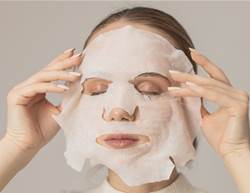“The internet is all over castor oil as a go-to skincare product,” says dermatologist Dr Mary Alice Mina. People on TikTok claim that it has botox-like effects, lightens under-eye circles, and treats acne—a one-and-done magical elixir for all complexion woes. If that was the case, though, wouldn’t everyone be using it?
Castor oil is a vegetable oil that comes from the seeds of the castor plant. It’s best known for its use as a laxative. In alternative medicine, it has also been used as a treatment for arthritis, headache, menstrual cramps and to help induce labour, among other applications.
Before you start slathering castor oil on your face, read on to learn the full story of the ingredient, as told by dermatologists.
Castor oil for face benefits
The superhero within castor oil is ricinoleic acid, a fatty acid with potential skincare benefits. However, science is still working on validating its effects. “The results are mixed on whether it really delivers in the form of castor oil,” Dr Mina explains. That said, some of the potential benefits include:
- Hydration and barrier support: Ricinoleic acid has moisturising properties that may support skin barrier function, explains dermatologist Dr Janet Vafaie. “Its occlusive nature can lock in moisture, potentially making the skin appear smoother and more hydrated.” This means castor oil may act as a shield against dryness caused by cold weather or harsh skincare products.
- Soothing irritation: Ricinoleic acid also has anti-inflammatory properties, according to board-certified dermatologist Dr Kristina Collins, so it may soothe irritated or sensitive skin.Research in animals shows that ricinoleic acid may also fight swelling and pain when applied topically. In fact, another study in people found it was as effective at treating symptoms of knee arthritis as non-steroidal anti-inflammatory drugs (NSAID).
- Wound healing and animicrobial properties: Castor oil’s emollient nature may assist with minor wound healing by maintaining a moist environment that supports skin repair, says Dr Collins. It also has mild antimicrobial and antifungal properties, which could help prevent certain skin infections. While this may mean it could aid in clearing some types of acne, more research is needed to confirm its effectiveness.
How to use castor oil for face
Before applying castor oil to your face for the first time, it's a good idea to perform a patch test in a less conspicuous area of skin, like your inner arm, to ensure you don't have an allergic reaction, Dr Collins says.
If your skin is super dry, you could rub a small amount of castor oil directly onto a clean face, smoothed over in a thin layer. But it's most easily applied and comfortably worn when diluted with a carrier oil like jojoba or argan, Dr Vafaie adds. Also, if you're acne-prone, she says cutting it with a carrier oil is the best option because its thick texture can clog pores.
"Gently massage the mixture onto clean skin, then pat away any excess with a soft towel," Dr Vafaie says. "This helps create a balanced formulation that is less likely to cause breakouts."
Castor oil side effects
There aren't many potential side effects to trying out castor oil. The main few are:
- Clogged pores or breakouts: "Castor oil can clog pores in acne-prone skin and cause irritation, especially if used undiluted. Always patch-test first to avoid a reaction," says Dr Mina.
- Allergic reaction or sensitivity: "Some people may experience redness, itching or irritation," Dr Collins says. "Prolonged use or improper dilution can lead to sensitivity or skin barrier disruption."
Can castor oil remove dark spots?
"There was one study suggesting castor oil helped reduce dark under-eye spots but this wouldn't be my go-to for hyperpigmentation," says Dr Mina, referring to marks left behind by acne or sun damage. "There just isn't enough strong evidence that it helps lighten pigmentation. Stick to clinically proven ingredients like vitamin C, niacinamide or retinoids instead."
Does castor oil tighten skin?
All dermatologists agree that castor oil does not permanently tighten skin. “It may give the temporary illusion of tightness due to its moisturising properties, but it does not stimulate collagen or elastin,” says Dr Collins.
For genuine skin-tightening effects, Dr Collins suggests using collagen-boosting ingredients like retinoids or opting for professional treatments like radiofrequency or microneedling.
Castor oil may hydrate and soothe the skin, but its effectiveness in reducing pigmentation, acne, or wrinkles remains unproven. “We have better-studied ingredients for skin hydration and overall skin health,” says Dr Mina. While it may offer some benefits, it’s best used alongside evidence-based skincare rather than as a miracle solution.



.jpg&h=90&w=90&c=1&s=1)


.jpg&h=193&w=250&c=1&s=1)



